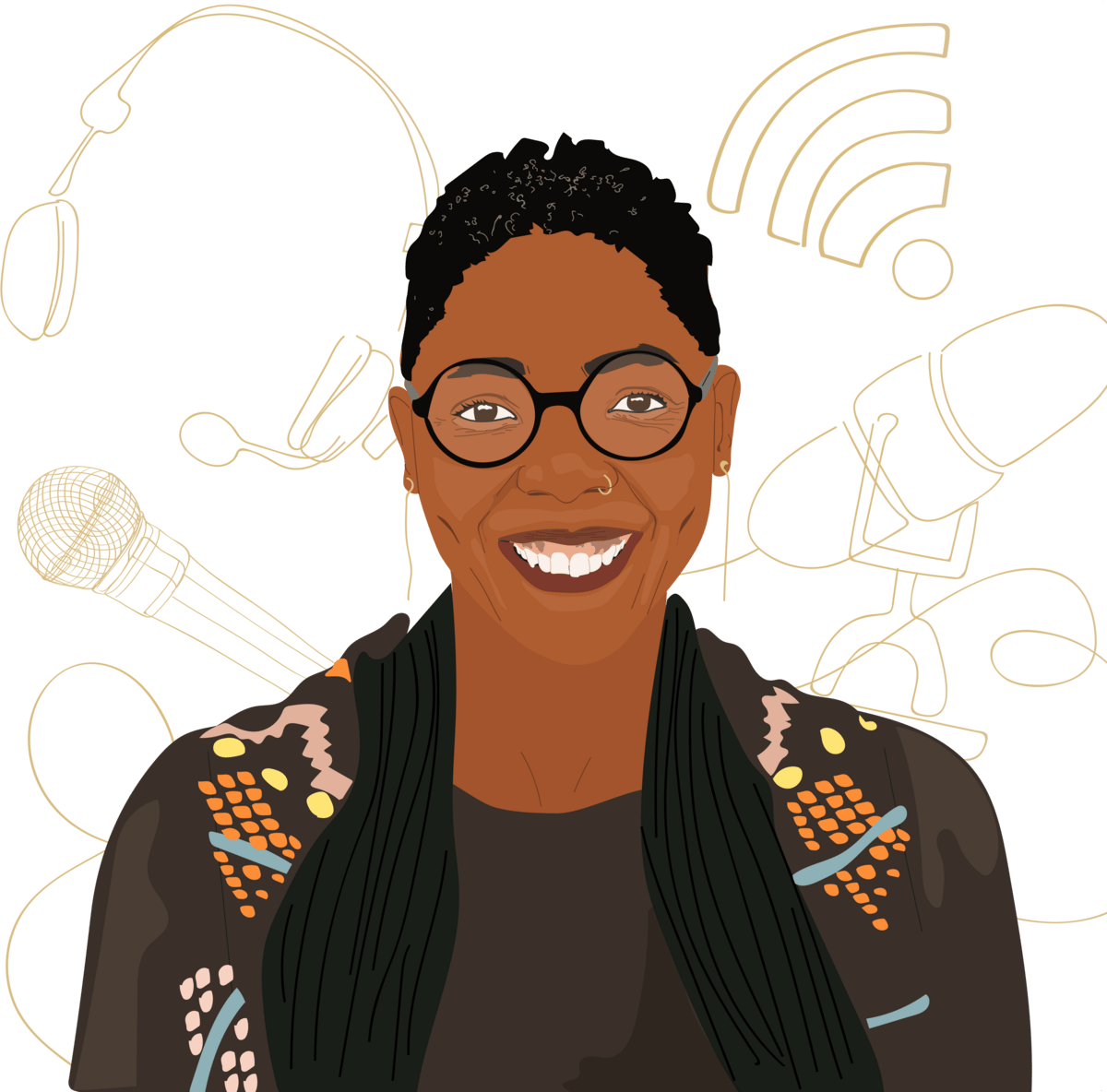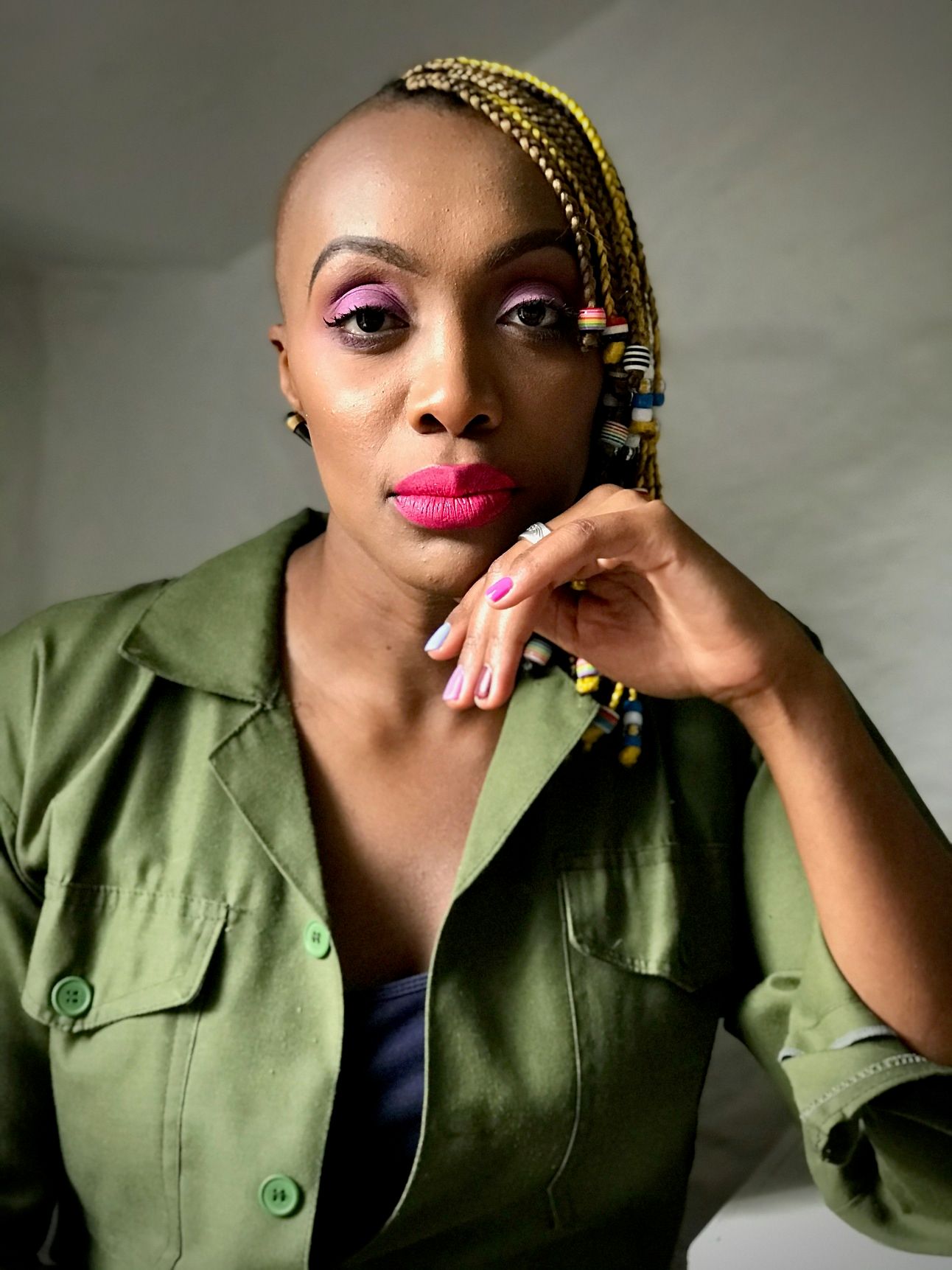
📸 Patti Black, Unsplash
Heeey!
Yes, we are celebrating! Why? Well, we have a winner!!! A couple of weeks ago, Shades and Layers ran a giveaway.
Let’s take a moment to say congratulations to podfriend Karabo Lediga, the winner of our giveaway in October. She was quick off the mark and was the lucky newsletter subscriber who walked away with a copy of “Coffee Milk Blood” by Kenyan coffee entrepreneur Vava Angwenyi and English photographer Portia Hunt. Welcome to the squad Karabo and thanks for participating! 🎉
On another note, we are fresh off the end of spooky season and I’ve been loving all the foolishness and genius Halloween outfits looks spotted on social media. One of my favorites was Kerry Washington as World Champion 100m sprinter, Sha’Carri Richardson. Nailed it!
Unfortunately I’m not a dress up kinda girl, so no outfits to share. Every year I promise myself that I’ll dress up and it never happens. LOL.
And now as we head into cosy season, we are reminded of a new round of foolishness: overspending and overdoing pretty much everything we can. The Christmas decorations are already up in the stores. Yikes! Is it just me or is it giving pressure? Hit reply and let me know.
Here’s what’s coming up in the rest of this edition.
-Latest Episodes
-Gratitude - It’s complicated
Oh, one more thing before we get into it: Remember to tell your friends that good things happen for those who ride with the squad. You can win a book for example. And if this edition was shared with you, don’t miss the next one. Do de ting 👇🏾
LATEST EPISODES
BREWING HOPE
This episode is a journey through the African coffee trade and features Kenyan entrepreneur Vava Angwenyi. This is her personal journey from founding Vava Coffee Inc. and the transformative initiatives she's launched in her home base in Lamu, Kenya. Vava is dedicated to educating local youth (especially women) about the industry, empowering them with practical skills and creating opportunities for them in the industry. For this purpose, she works with a Tanzanian-based partner from Colombia, and together they have launched Gente Del Futuro. They have also founded Lamu’s first coffee house, La Dulce Toro, which doubles up as a coffee education institute.
ACTING ALOPECIA AND ENTREPRENEURSHIP

Shalita Grant, Founder (4 Naturals Haircare) and Tony-nominated actress.
Shalita Grant is a Tony-nominated actress and alumna of the NCIS franchise, where she was a regular on the New Orleans installment. She is also the Founder of Four Naturals Haircare, a brand she founded after her much publicised exit from the aforementioned show.
Have you ever wondered about the hair journey of black actresses, the hurdles they face, and how the lack of specialized hair care options affects them? In this episode, Shalita gives us a rundown on this significant issue, she shares her personal struggles with traction alopecia and the resulting inspiration to create a formula that would solve her own complex Type 4 hair problems, and her development of a patent-pending hair detangling technique. She has found that the hair experience for black women is universal in that no matter your social class or background, you will face the same lack of choice when looking for hair products and treatments. And her mission is to address this issue by bringing ease to the lives of black women.
GRATITUDE AND TURKEY
Every single evening, our family gathers around the table to share a meal. It’s an opportunity to check in on each other and how our respective days went. We also have this ritual of going around the table and each person names three things that they are grateful for. I’m amazed at the different things that my little people, who are 7 and 10 years old, mention during this part of dinner. And it’s not just video games and basketballs. They get really specific - from friendships to school lessons - and pushes us adults to up our gratitude game.
Gratitude is of course a relevant topic at this time of year in the United States because of the upcoming Thanksgiving holiday, and because we do live here now. We know about its less than savory origins, as so eloquently explained in this Teen Vogue viral video from a few years ago, but as mentioned in the last edition of the newsletter, we have a fundamental need for rituals as humans. How else do we make sense of place and time, and indeed our very own existence and its meaning?
And so, knowing the history of America’s biggest holiday - even bigger than Christmas and Easter - how does one reconcile its barbaric history with its mainstream interpretation as tradition? Does it get repackaged as something new? The reason why this is so fascinating for me is that in the aftermath of South Africa’s negotiated settlement with the apartheid state, there are many sanitized commemorations. For example, coming up on December 16th is what was known as Dingaan’s Day under apartheid, and in true South African fashion, nicely repackaged as ‘Reconciliation Day’ for the new rainbow nation. One of my relatives once told me the heartbreaking childhood story of going to Pretoria with her father on ‘Dingaan’s Day’ and watching helplessly as her father was beaten up by racists for whatever random reason. But some other family will remember the anti-pass law/racial justice protests that were held on this day before apartheid became law. Another family will remember the foundation of the African National Congress’s armed wing, Umkhonto Wesizwe on this day in 1961, and so on. Without these truths and context, these national holidays become commercialized festivities. Today December 16th has come to officially mark the end of the year and the start of the festive season. Any South African will tell you that nothing happens between the 16th of December and the end of January.
That said, I find myself in between many places and reaching deep into memories of how I learned what I know of history, current affairs, culture, rituals and ceremonies of the amaNdebele and baTswana. But also how these were seamlessly fused with secular multicultural life in Soweto and other places. In our house, it was subtle. Our parents had many books on shelves and lying around on coffee tables randomly (or maybe strategically) and we would pick them up, page through them and learn different things all the time. From African capitals, to productivity hacks, African beauty/style secrets and chemistry. And I noticed that I’ve started doing the same thing in my home. I’d like to think that it has been intentional, but honestly it’s simply just repeating the familiar. Being so far away from home and any relevant context to what I want my children to learn, this becomes ever increasingly important. And thank goodness they have curious minds and a voracious appetite for any and all knowledge.
At the same time, I do want them to feel like a part of place where they live. And so, there are two accounts of the Thanksgiving origins story that will be taught; recognizing that we all learn by watching others and through story. And one account is different from what I hear they learn at school about pilgrims and whatnot. For now what I know is that I will not be cooking a turkey. Apart from the size of the birds, just …no. There will definitely be a whole bunch of vegan options on the table. And we will be expressing gratitude together with other friends from foreign.
Wishing you a wonderful turkey day if you’re celebrating!
WHAT I’M READING AND LOVING AT THE MOMENT
Loving UK journalist Funmi Fetto’s Palette: The Beauty Bible for Women of Colour. It’s a reference of inclusive beauty brands interspersed with personal essay-style reviews, an intimate knowledge of each of the recommended products, sage and candid advice on choosing your treatments and routine products. Funmi Fetto’s career spans many major women’s publications in the UK, including British Vogue. She’s currently the Executive Editor and Beauty Director at Glamour and also consults for global beauty brands.
At the same time I’m complementing this read with beauty essays compiled by London transplant from the USA, Kenya Hunt in an offering called Girl Gurl Grrrl: On Womanhood and Belonging in the Age of Black Girl Magic. It features essays by other contributors like Candice Carty-Williams, author of Queenie, hair influencer/entrepreneur Freddi Harrel and various other notable journalists and beauty inclusion advocates and activists.
Recommended watching is this documentary called Spirits for Sale: The Commercialization of American Indian Rituals (2012) https://www.justwatch.com/us/movie/spirits-for-sale
And I’ve been re-listening to one of my favorite podcasts on African Spirituality Umoya, hosted by another fave, Milisuthando Bongela and co-host Athamile Masola - https://player.fm/series/umoya-on-african-spirituality
I soon plan to revisit Edward Said’s Culture and Imperialism, it’s been a while.
WHAT ARE YOU UP TO?
So, what are you up to these days? What are you reading, what are you watching? Send me an email: [email protected] or find me on Instagram.
That’s it from me! Remember to invite your friends to join the squad! Until next time, please do take good care!
Cheers,
Kutloano
(your host with the most)
PS. This edition was written while listening to Eve Fairley-Chickwe’s Taste Playlist

